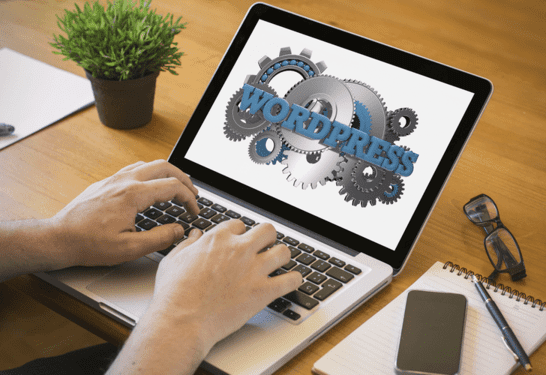In some instances, companies could even give consumers the ability to “decide out” of sure information assortment practices. Whereas this may appear counterintuitive for companies looking to collect as a lot relevant info as possible, the reality is that allowing customers to choose out may help further construct belief and model loyalty. Companies throughout the globe are harnessing the facility of knowledge to enhance operations, higher understand their clients, and make informed choices. Nevertheless, this energy comes with duty, and knowledge ethics is now a crucial consideration for enterprise owners. Each piece of data https://www.globalcloudteam.com/, especially private and delicate ones, has an inherent affiliation with people or entities. It Is important that organizations respect this relationship and be certain that information is not exploited or misused.
Knowledge ethics points are quite a few, starting from private information leaks to nationwide security impacts, overlaying a variety of fields and entities, with a broad impact range and the potential to trigger critical social problems. The shared values upheld by the worldwide neighborhood can be primarily categorized into human-centricity, privacy safety, safety, transparency, accountability, and fairness https://carmack.ir/bitbucket-pipelines-configuration-reference/. The ten knowledge ethics frameworks thought-about on this paper totally or partially embody these six core values. In the context of globalization, the shared values of information ethics present a common language and benchmark for international cooperation.

By embracing informed consent, data transparency, and consent-based data assortment, firms can meet not solely regulatory necessities but additionally moral responsibilities. The creators of Firefox implement ethical data practices by collecting minimal data, providing opt-in options, and sustaining excessive levels of information transparency. Organizations must continually reassess their methods to ensure they align with the evolving understanding of knowledge collection ethics and moral information use. At the normative level, an moral governance system must be constructed with a mainline of legal regulations—ethical framework—ethical requirements. This system shall be based on authorized rules, guided by an ethical framework, and grounded in ethical standards for particular implementation, thereby guaranteeing that knowledge ethical governance has authorized backing and rational justification.
Regulation and ethics are intricately intertwined, mutually influencing each other, and collectively advancing society in the course of a extra simply, equitable, and moral direction. The regulatory mechanism offers practical assurance for the enforcement of authorized and ethical principles. In the subsequent sections, the writer will first delineate the origins of information ethics and highlight notable educational analysis on this domain.
Additionally, ODI offers a useful software for organizations to benchmark their maturity in relation to information ethics and develop action plans to enhance their practices. Data ethics refers to the Legacy Application Modernization principles and frameworks that govern the accountable assortment, processing, and use of knowledge, making certain privacy, safety, fairness, transparency, and accountability. Biases may be accidentally introduced into knowledge gathering and analysis procedures, leading to biased outcomes. Organizations should examine their algorithms and models for bias often and resolve any considerations they uncover. This consists of making clear and simply accessible details about their data collection and usage strategies available.
Understanding ethical information assortment and usage is important in today’s digital age. It is of great significance to comply with greatest practices to make certain that information is collected transparently and lawfully. Obtaining informed consent from individuals, anonymizing private info, securely storing knowledge, and utilizing it solely for its meant objective are key concerns in this process.
Underestimating The Importance Of Information Ethics

The United Nations Human Rights Commission (OHCHR) published a steerage note on the use of knowledge and statistics in keeping with international human rights norms and ideas. It units out a Human Rights-Based Strategy to Knowledge (HRBAD) with a concentrate on knowledge assortment and data disaggregation which are formulated underneath six headings. At the heart of consent-based information assortment is the precept of knowledgeable consent. This means that users have to be clearly told what knowledge is being collected, why it’s being collected, and how will in all probability be used. Accountable information assortment not only enhances brand popularity but in addition reduces authorized danger. With the introduction of rules just like the GDPR (General Data Safety Regulation) in Europe and the CCPA (California Shopper Privateness Act) in the U.S., companies are actually obligated to collect and deal with data transparently and lawfully.
Companies should use secure methods to guard data from unauthorized entry, breaches, or leaks, and respect the privacy of the people whose data they deal with. Companies and institutions that adhere to good information ethics are more transparent about their data practices. This openness builds belief with clients, employees, and stakeholders, which is essential for long-term success.
- Data ethics is the department of ethics that addresses the generation, collection, sharing, and use of knowledge.
- As a end result, the project was finally scrapped, serving as a poignant reminder of the need to strike a delicate balance between technological advancement and ethical dealing with of information.
- It aimed to assign a novel identification number to each Indian citizen by accumulating their fingerprints and iris scans.
- In The End, ten international locations and supranational alliances with well-established knowledge ethics frameworks were chosen for study.
- As a business skilled, knowledge ethics ought to be on the forefront of every choice you make.
Are Organizations Prepared For New Privateness Regulations?
The interdisciplinary nature and the broad range of stakeholders concerned in data ethics necessitate that a sturdy knowledge ethics framework be developed through collective brainstorming and complete consideration. Numerous participation contributes to capturing the complexity of data usage and processing from different views, making certain that moral frameworks reflect the variety and broad issues of society. Furthermore, extensive participation aids in elevating public awareness of knowledge ethics issues, enhancing trust and acceptance of moral frameworks, thereby facilitating their implementation and adherence. When it comes to ethical data assortment, there are key practices that we must adhere to. In this section, we are going to dive into the world of finest practices for ethical knowledge collection.
The three fundamental information ethics ideas embrace transparency, consent, and accountability. These rules information organizations in guaranteeing ethical information practices that respect consumer rights and promote belief. To thrive in today’s digital economic system, organizations should undertake greatest practices for moral data assortment, uphold data privateness and ethics, and be positive that all processes align with the principles of moral knowledge use. Businesses use it to tailor consumer experiences, improve merchandise, and increase profitability. Nonetheless, as information harvesting practices turn into extra subtle, questions on ethical data assortment and accountable data use have grown extra crucial than ever.
Applying these rules helps make certain that information collection principles of data ethics supports accountable innovation while safeguarding individual rights and authorized compliance. Data ethics is the department of ethics involved with the moral ideas and pointers governing information assortment, storage, evaluation, and utilization. Accountability implies that the organization is liable for the information after it’s collected.